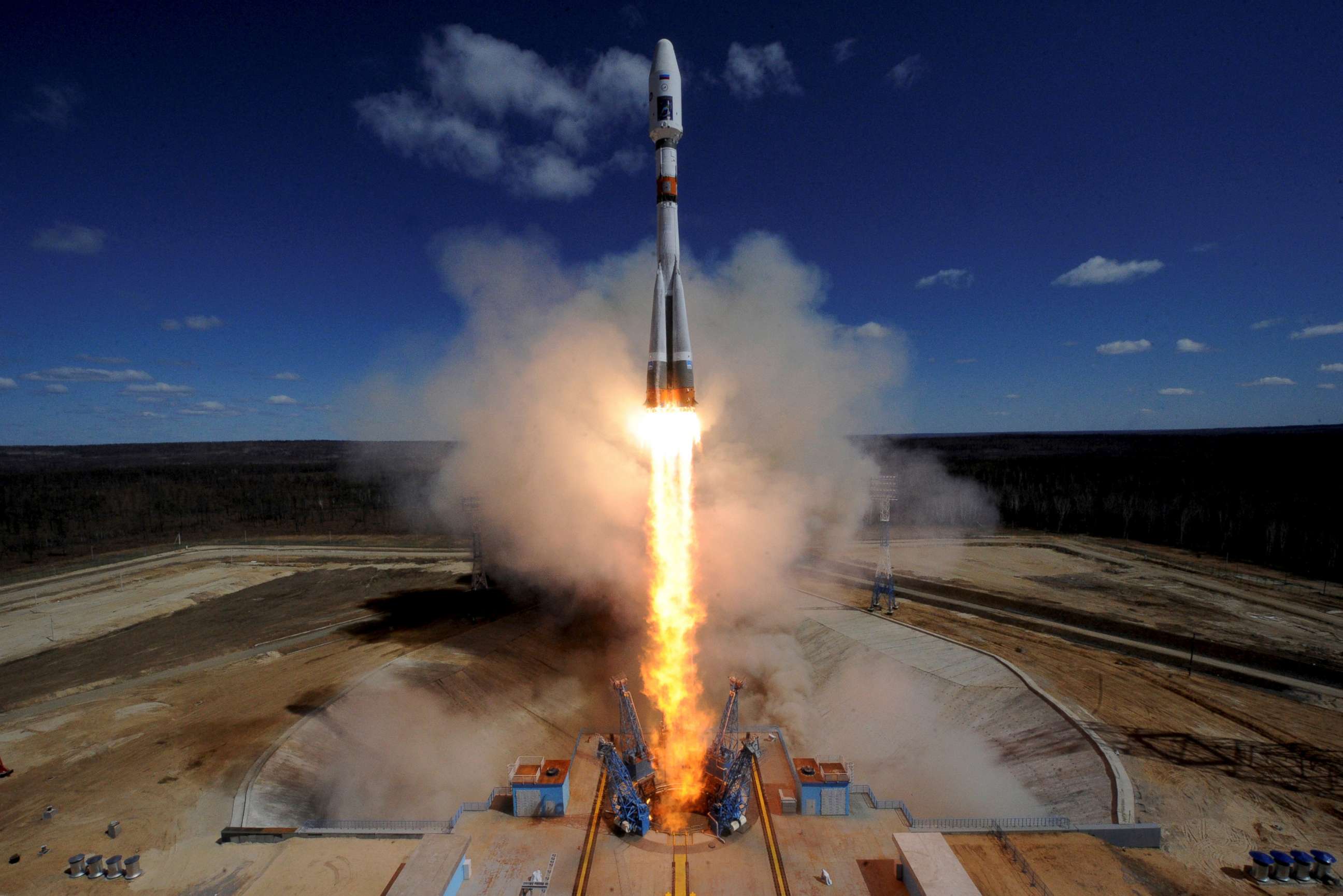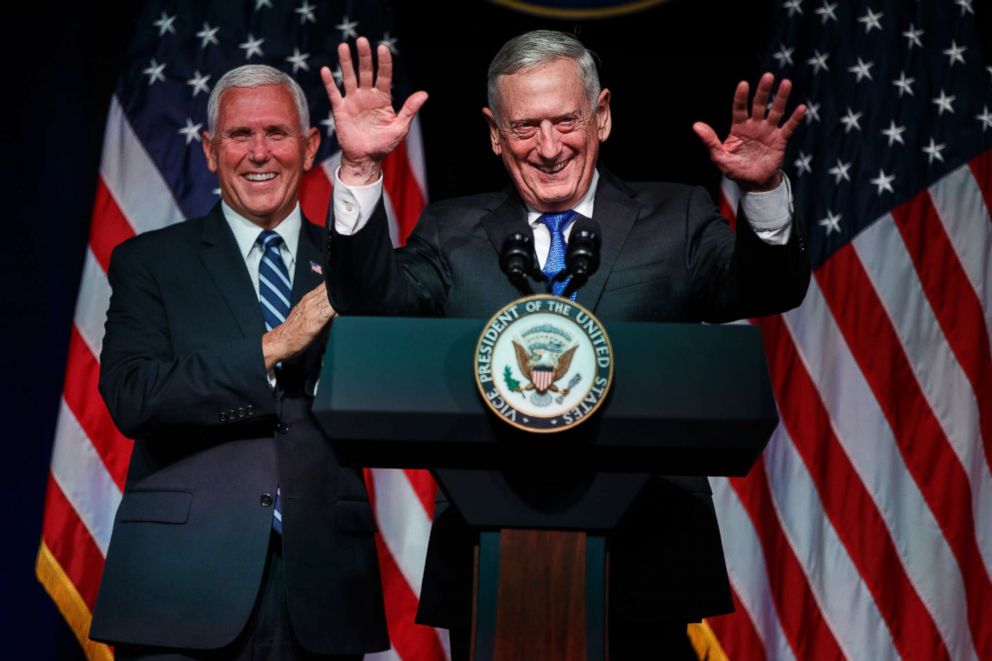US concerned by Russian satellite's 'very abnormal behavior'
The U.S. has "serious concerns" about Russia's push to launch weapons in space.
When Vice President Mike Pence laid out the Trump administration's plan to establish a Space Force as a new branch of the military last Thursday, critics said it was a wasteful and unnecessary step that added bureaucracy for something that didn't present a threat.
But now the U.S. is voicing concerns and claiming that threat is very real -- pointing in particular to a Russian satellite's "very abnormal behavior."
The satellite, launched in October 2017, has displayed behavior "inconsistent with anything seen before from" the kind of satellite Russia has said it is, according to Assistant Secretary of State for Arms Control, Verification, and Compliance Yleem D.S. Poblete.
Instead, without saying it outright, Poblete implied that the object could be a weapon, but said the U.S. cannot know for sure.
"We don't know for certain what it is, and there is no way to verify it," Poblete said yesterday in Geneva, Switzerland, at the Conference on Disarmament. Poblete was speaking before the international body for negotiating arms control to express the U.S.'s "serious concerns" about Russia's push to launch weapons in space, especially anti-satellite weapons that can target satellites that the U.S. relies on for business, scientific and military purposes.

Poblete cited recent comments from several top Russian officials, including President Vladimir Putin, about the development of weapons in space and Putin unveiling a mobile laser system in March that could shoot down satellites.
"The Russian pursuit of counterspace capabilities is consistent with these other activities and is disturbing given the recent pattern of Russian malign behavior," she said.
Russia has denied the satellite is a weapon, with a senior Russian diplomat in Geneva telling Reuters these were "the same unfounded, slanderous accusations based on suspicions, on suppositions and so on." Instead, the diplomat called on the US to make a "constructive contribution" to improve a treaty backed by Russia and China to ban weapons in space.
That document -- the Prevention of the Placement of Weapons in Outer Space, or PPWT -- has been opposed by the U.S. for years, with the Obama administration calling it "fundamentally flawed" in 2014. The U.S. says it allows for too many loopholes and too few inspections that it gives cover to countries like Russia and China to do the very thing it is trying to prevent, weaponize space.

Poblete went further, saying international weapons inspections are virtually impossible in space, leaving only the chance to observe the behavior of another country's satellites. But because "we have no means of differentiating many objects’ behaviors from that of a weapon," Poblete said, "Outer space arms control is unverifiable."
The top U.S. diplomat for arms control also warned that Russia "has routinely violated its international commitments" on arms control and cannot be trusted.
As Pence and Defense Secretary James Mattis announced last week, the Trump administration plans to establish a U.S. Space Command, a new combatant command focused on space as a war-fighting domain and led by a four-star general. Currently, a three-star Space Command falls under the Air Force, headquartered at Peterson Air Force Base in Colorado and responsible for 30,000 personnel worldwide.
Congress, however, would need to approve the creation of a new military branch, and the administration says it will submit that as part of its 2020 budget request.

While Poblete only went after Russia on Tuesday, Pence during his speech pointed not only to Russia's development of that mobile laser system, but also to China's successful demonstration of how a missile can track and destroy satellites.
"Both China and Russia have been conducting highly sophisticated 'on-orbit' activities that could enable them to maneuver their satellites into close proximity with ours, posing unprecedented new dangers to our space systems," the vice president said. "Both nations are also investing heavily in hypersonic missiles that are designed to fly up to 5 miles per second and at such low altitudes that they could evade detection by our missile-defense radars. In fact, China claimed to have made its first successful test of a hypersonic vehicle just last week."
Pence added that the U.S. "will always seek peace, in space as on earth."




